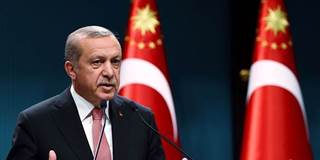Turkey's failed coup is likely to reinforce the illiberal democracy emerging under President Recep Tayyip Erdoğan, in which majoritarian rule runs counter to pluralism, human rights, and freedom of speech. The stability of such a system in Turkey – where hostility to Erdoğan is strong – remains to be seen.
JERUSALEM – The aftermath of Turkey’s failed military coup raises a fundamental question: will President Recep Tayyip Erdoğan continue to pursue his authoritarian path, perhaps with a vengeance, or will he reach out to his opponents and attempt to bridge the deep fissures in Turkish society?
The jury is still out, but judging from previous historical examples, serious challenges to authoritarian or semi-authoritarian leaders usually lead to a hardening of the regime, not greater moderation. And Erdoğan’s moves since the coup’s collapse – mass arrests and purges of thousands of soldiers, judges, police, and teachers were announced almost immediately – seem to confirm the more pessimistic scenario.
Yet it would be a mistake to view what is now happening in Turkey exclusively through the prism of Erdoğan’s personality and his authoritarian inclinations. He and his Justice and Development Party (AKP) represent a tectonic shift in Turkish politics, one with parallels in other Muslim-majority countries in the Middle East.

JERUSALEM – The aftermath of Turkey’s failed military coup raises a fundamental question: will President Recep Tayyip Erdoğan continue to pursue his authoritarian path, perhaps with a vengeance, or will he reach out to his opponents and attempt to bridge the deep fissures in Turkish society?
The jury is still out, but judging from previous historical examples, serious challenges to authoritarian or semi-authoritarian leaders usually lead to a hardening of the regime, not greater moderation. And Erdoğan’s moves since the coup’s collapse – mass arrests and purges of thousands of soldiers, judges, police, and teachers were announced almost immediately – seem to confirm the more pessimistic scenario.
Yet it would be a mistake to view what is now happening in Turkey exclusively through the prism of Erdoğan’s personality and his authoritarian inclinations. He and his Justice and Development Party (AKP) represent a tectonic shift in Turkish politics, one with parallels in other Muslim-majority countries in the Middle East.